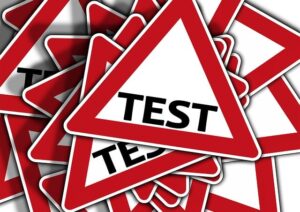Accurate translation of examination papers for visa applications is crucial to avoid delays and misinterpretations. Professional translators with academic expertise use advanced techniques to preserve context and specialized terminology. Engaging skilled translators and implementing best practices ensures integrity, precision, and efficiency in visa processing for international students.
“Navigating the complex world of international travel often requires meticulous documentation, and one crucial aspect is the accurate translation of examination papers for visa processing. This comprehensive guide delves into the essential components of meeting translation requirements, employing advanced techniques, and overcoming common challenges.
From understanding the nuances of academic documents to implementing best practices, this article ensures a smoother journey for applicants, offering valuable insights into efficient visa processing.”
- Understanding Examination Papers Translation Requirements
- Accurate Translation Techniques for Visa Applications
- Common Challenges in Paper Translation Process
- Best Practices for Efficient Visa Processing
Understanding Examination Papers Translation Requirements
When applying for a visa, understanding the examination papers translation requirements is crucial. Different countries have distinct guidelines regarding the acceptance and format of translated documents, especially for academic qualifications. The goal is to ensure accuracy and avoid any potential delays in processing. Therefore, prospective applicants must be aware that simply translating the papers word-for-word may not meet the necessary standards.
The complexity lies in capturing the intended meaning while adhering to linguistic nuances. Skilled translators with expertise in legal or academic documentation are best equipped to handle this task. They employ methods like context analysis and cross-cultural adaptation to deliver precise translations, ensuring that the original information is preserved and any specialized terminology accurately conveyed.
Accurate Translation Techniques for Visa Applications
When translating examination papers for visa processing, accuracy is paramount. Professional translators must employ advanced techniques to ensure every detail in the original document is preserved and accurately reflected in the target language. This involves not just word-for-word translation but also understanding the context and nuances of academic language.
Specialized terminology, complex sentence structures, and even subtle cultural references found in examination papers require meticulous handling. Translators must either possess subject matter expertise or consult with experts to guarantee the translated content is both precise and meaningful. Modern tools like machine translation can assist, but human oversight remains crucial for maintaining the integrity of the original information, especially when high-stakes visa applications are at stake.
Common Challenges in Paper Translation Process
The translation of examination papers for visa processing can be a complex and challenging task due to several factors. One of the primary difficulties lies in maintaining academic integrity while ensuring precise language interpretation. Examination papers often contain specialized terminology, intricate concepts, and specific formatting that requires a deep understanding of both languages involved. Accurate translation demands a native-level proficiency in the target language to convey the exact meaning without losing the original intent.
Another common challenge is dealing with cultural nuances and variations in academic standards across different countries. Examinations are designed according to specific educational systems, and translating them must consider these differences to avoid misinterpretation or loss of context. This process becomes even more intricate when dealing with international students who may have diverse language backgrounds and educational frameworks, emphasizing the need for experienced translators well-versed in both linguistic and cultural aspects.
Best Practices for Efficient Visa Processing
To ensure efficient visa processing, especially when dealing with international applicants, implementing best practices for translating examination papers is paramount. One crucial step is to employ professional translators who are not just linguistically adept but also familiar with the specific academic field and terminology of the documents. This minimizes errors and maintains the integrity of the original content.
Additionally, utilizing advanced translation technologies like machine translation followed by human review can significantly speed up the process while preserving accuracy. Standardizing translation procedures, including clear guidelines on style and format, facilitates consistency across all applications. Regular training sessions for staff involved in visa processing, focusing on best practices for handling sensitive documentation, further enhances efficiency and ensures compliance with requirements.
Accurate translation of examination papers is a vital step in visa processing, ensuring that applications are assessed fairly and consistently. By employing advanced translation techniques and adhering to best practices, institutions can streamline the process, minimizing errors and delays. Understanding the specific requirements and common challenges allows for more efficient visa processing, ultimately facilitating global mobility.
